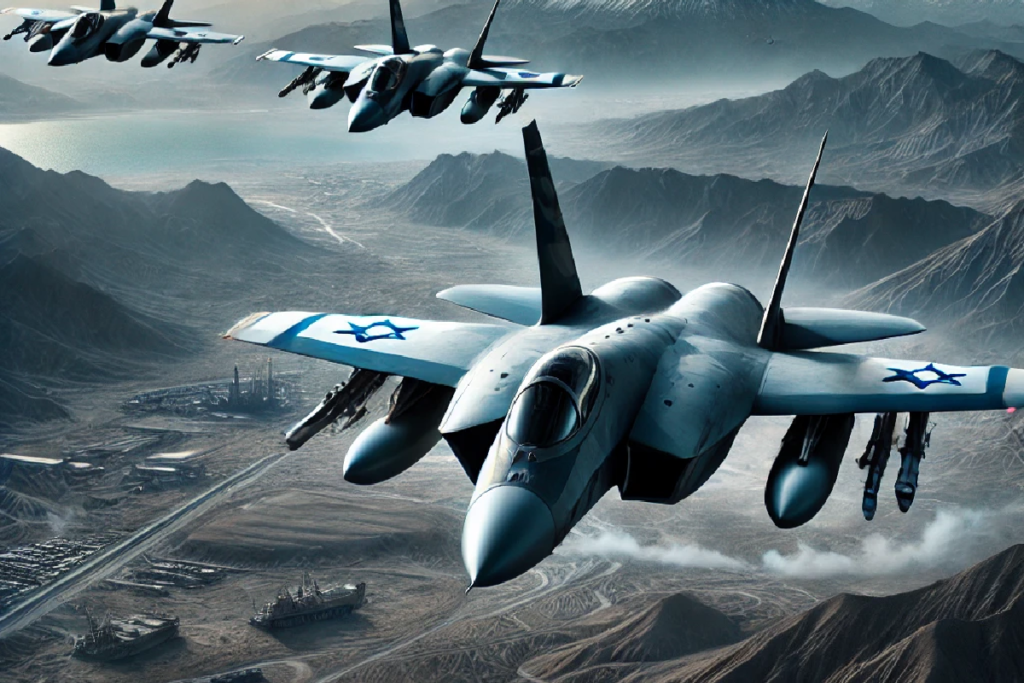In a dramatic escalation of hostilities, Iran launched a massive missile strike on Israel in response to the killings of key Hamas and Hezbollah leaders, deepening the volatile Middle East conflict. The attack on October 1, 2024, saw nearly 200 ballistic missiles launched from Iran, striking various Israeli targets. Though Israel’s advanced air defense systems successfully intercepted most of the incoming missiles, the attack has sent shockwaves across the region.
The Immediate Impact
The missile barrage led to widespread alarm in Israel, with civilians rushing to bomb shelters as air raid sirens echoed across the country. Fortunately, initial reports indicated no major casualties or extensive damage due to Israel’s robust defense systems, which intercepted a significant number of the missiles. However, the psychological toll on the Israeli population remains high, as the missile attacks from Iran followed a series of intense clashes between Israeli forces and Hezbollah fighters along the Lebanese
The Iranian government has framed the missile strike as retaliation for the recent Israeli airstrike that killed Hezbollah leader Hassan Nasrallah in Beirut and the assassination of Hamas political leader Ismail Haniyeh earlier in the year. Iran’s Islamic Revolutionary Guard Corps (IRGC) has made it clear that this attack is only the beginning if Israel continues its aggressive actions against its regional allies
Israel’s Response
Israeli Prime Minister Benjamin Netanyahu wasted no time in promising swift and decisive retaliation, stating, “Iran has made a grave mistake, and it will pay for it.” Israel is currently evaluating its options, with potential responses ranging from targeted strikes on Iranian military installations to broader attacks on Iran’s critical infrastructure, such as its oil and gas facilities. Military experts speculate that Israel might follow its April 2024 strategy of focusing on military targets while avoiding civilian infrastructure, a move that aims to weaken Iran’s capabilities without sparking a full-blown war
Vet Benefits & News
Broader Regional Implications
The missile exchange comes at a precarious time for the Middle East. Hezbollah, which has fired hundreds of rockets into Israel in recent months, is now actively engaging Israeli forces near the Lebanon border, further complicating the situation. The United States, Israel’s key ally, is carefully weighing its involvement. While President Joe Biden has voiced strong support for Israel, the White House is also wary of getting dragged into a wider conflict that could destabilize the region and spike global oil prices
Analysts fear that this latest escalation could lead to a broader confrontation, involving not just Israel and Iran, but also their respective allies, including Hezbollah in Lebanon and Hamas in Gaza. As both sides continue to exchange fire, the possibility of diplomatic resolution seems increasingly unlikely.
Conclusion
As the conflict between Israel and Iran intensifies, the international community is urging restraint. However, with both nations determined to defend their interests and retaliate for perceived injustices, the situation remains highly volatile. Whether Israel will respond with a proportionate military strike or escalate the conflict further remains to be seen, but one thing is clear—this confrontation has the potential to reshape the geopolitical landscape of the Middle East.


